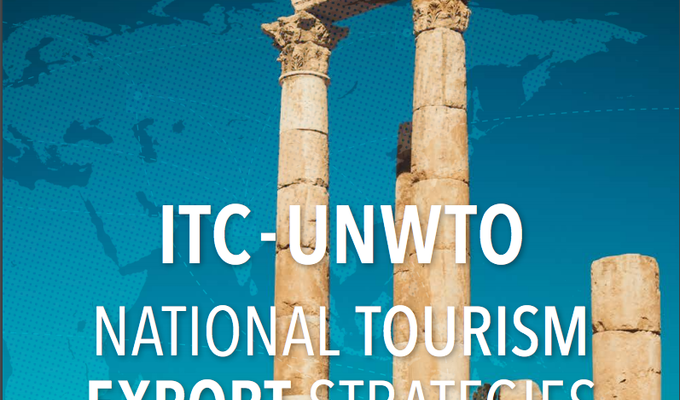
Tourism: the untapped underdog of Aid for Trade
To tap trade growth, tap tourism.
That’s the united message of experts speaking at sessions on tourism for sustainable development on 11 July during the Aid for Trade Global Review 2017 at the World Trade Organization (WTO). The first of these sessions was jointly organized by the International Trade Centre, the Enhanced Integrated Framework and the World Trade Organization (UNWTO), and benefited from the contributions of ministers of tourism and of trade from three least developed countries.
Tourism makes up 1 in 10 jobs and presents significant opportunities for sustainable growth, if done right.
It is an especially important sector for least developed countries: 45 out of 48 named tourism a key sector for trade development in diagnostic trade integration studies. These studies evaluate constraints on and opportunities for a country’s integration into the world economy, and they can be used to design trade-related technical assistance.
So there is demand for tourism development, and the timing is right to make it a priority: 2017 is the International Year of Sustainable Tourism for Development.
Prioritizing tourism development
Tourism can support diversification of exports, improve a country’s image and contribute to job creation and the production of sophisticated goods and services. It can also serve as the anchor that creates strong linkages with other sectors, from agriculture to education.
Harnessing nascent strength
This is where least developed countries can play up their strength: their natural endowments and cultural environments, managed properly, can become the backbone of their tourism strategies and help achieve the United Nations Sustainable Development Goals.
There are many types of tourism, from sightseeing to music, education to medical. A country must decide what to focus on and build its infrastructure around it – both hard and soft – and pass policies that support it.
Is there a link between tourism and graduation out of the ‘least developed country’ category? Dale Honeck, a WTO trade in services expert who specializes in tourism, says yes.
There is a reason tourism accounts for 7% of global exports and 30% of trade in services – and still holds potential for further growth.
Taking action, together
Notwithstanding the role of tourism for trade and its proven poverty reduction potential, the sector received only around 0.5% of Aid for Trade allocations between 2010-2015, according to recent data from the Organisation for Economic Co-operation and Development data. This needs to and can be addressed.
‘Trade is tourism, and tourism is trade,’ said ITC Executive Director Arancha González, speaking at a session on tourism, trade facilitation and connectivity.
‘Trade and tourism stakeholders need to strengthen their collaboration,’ said Marion Jansen, ITC Chief Economist, speaking at the session on tourism for sustainable development. ‘This is more easily said than done, but it is necessary to move from diagnosis to action. ITC is already walking the talk and has intensified its collaboration with the UN World Tourism Organization in Geneva, Madrid and in the field.”
Tourism pulls together an array of related activities to enhance visitors’ experiences in an authentic and stimulating way. Through the ITC-UNWTO National Tourism Export Strategy – a roadmap that addresses tourism development in any country in a holistic way – tourism could create a windfall of benefits for related activities, from adventure packages to culinary offerings to wellness services and more.
Check out the ITC tourism publication collection for more information.
For more on partnering to raise resources, read the newly launched publication, Tourism for Sustainable Development in Least Developed Countries.



